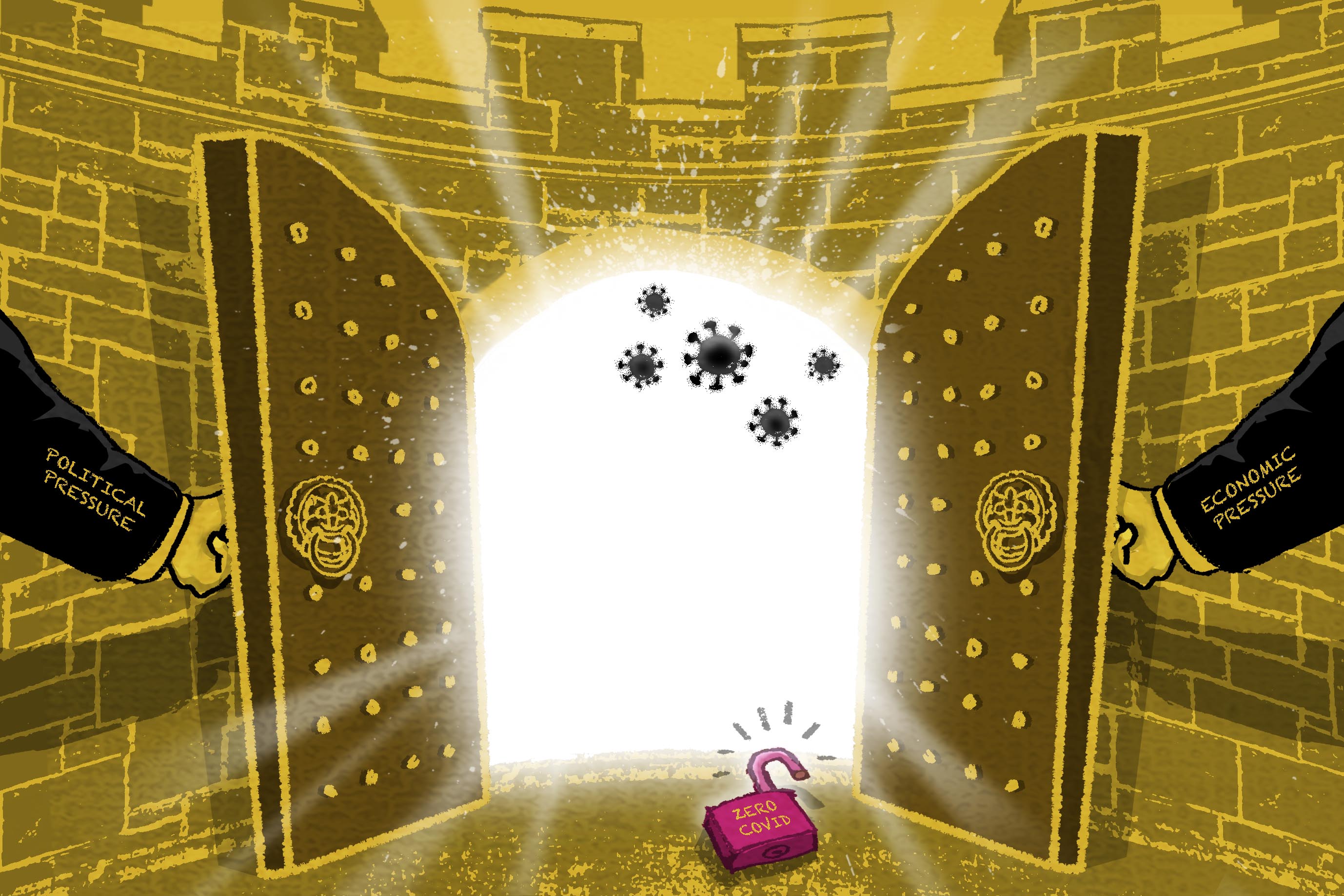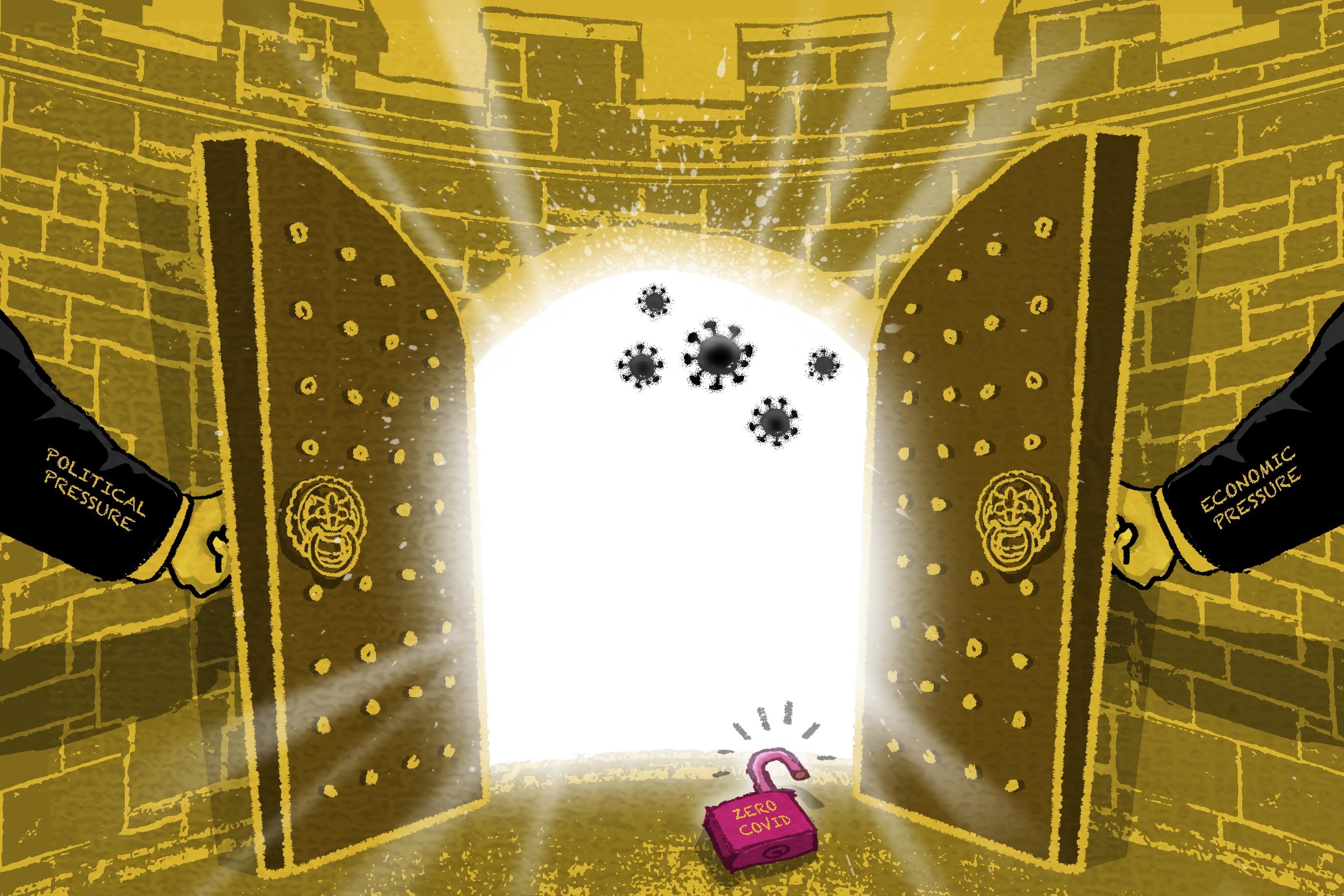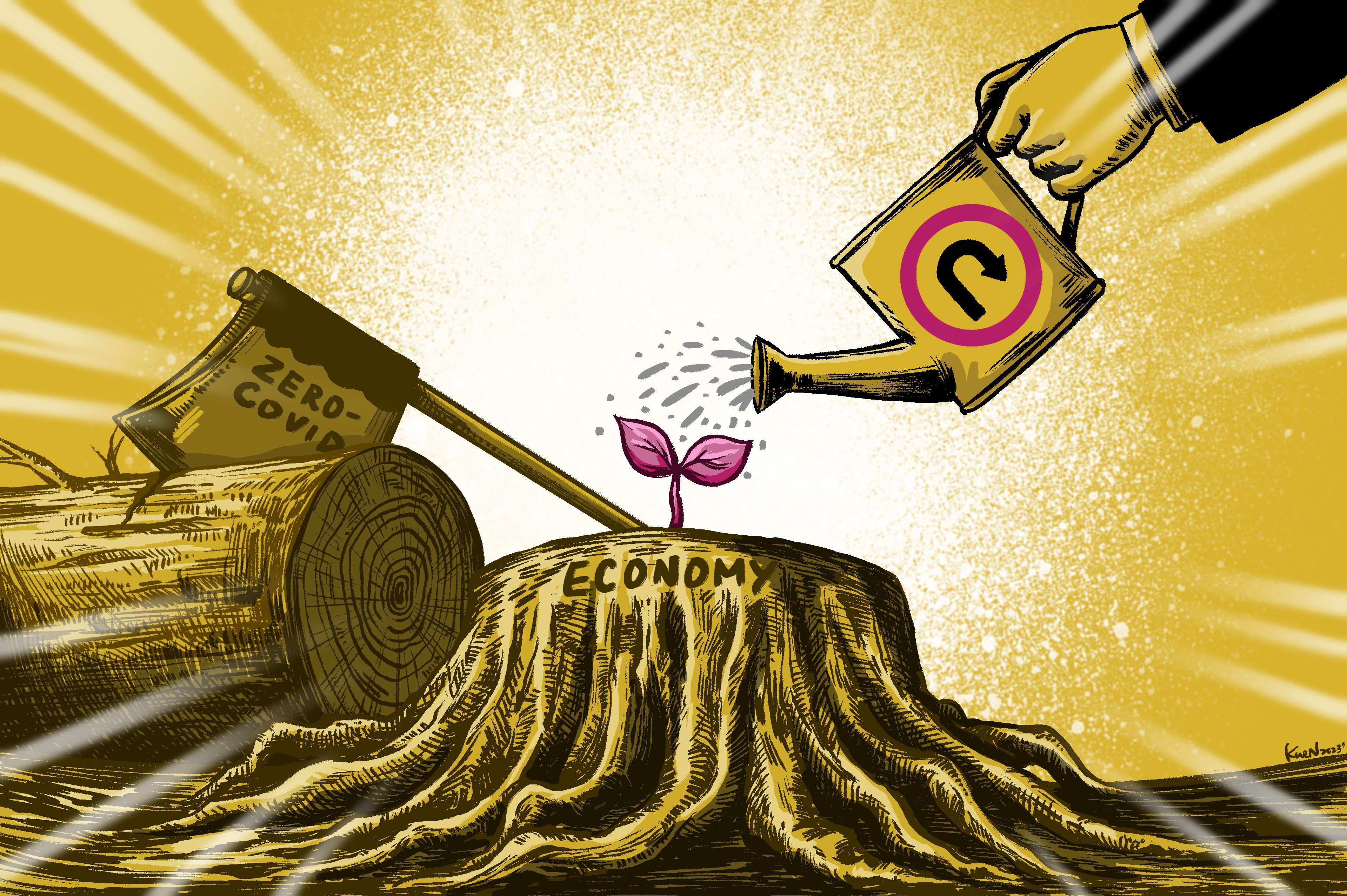Advertisement
Advertisement
China’s reopening: the impact of Beijing’s U-turn on zero-Covid
After three years of tough pandemic controls, China’s sudden U-turn on its zero-Covid policy has brought relief but also anxiety. This five-part series takes a look at the policy change and its impact.
Updated: 14 Jan, 2023

Advertisement
[1]
How political and economic pressure led to Beijing’s zero-Covid U-turn
A wide range of factors – including protests, rising infection numbers and the heavy toll on the economy – accelerated the pace of reopening.
10 Jan, 2023

Advertisement
Advertisement
[2]
How Omicron outbreaks burst China’s zero-Covid dykes
China succeeded in containing Covid-19 during the first two years of the pandemic, but the emergence last year of a more transmissible variant of the virus that causes the disease proved to be too much of a challenge.
11 Jan, 2023

[3]
For 3 years zero-Covid haunted China’s economy. It’s gone, but the scars remain
China’s sudden – and chaotic – break from zero-Covid has cost the economy and raised questions about the country’s top-down economic leadership model.
12 Jan, 2023

[4]
China bought time with zero-Covid. Did it pay off or was it ‘for nothing’?
Despite locking cities down for prolonged periods and imposing strict control on movements, the low vaccination rate among the elderly may prove a crucial error.
13 Jan, 2023

[5]
How China’s zero-Covid U-turn sparked a wave of public resentment
The “infection tsunami” sweeping the country after an abrupt pivot away from its zero-Covid strategy has plunged millions into despair.
14 Jan, 2023
